Typically speaking, conversations about the differences between an assisted living community versus a skilled nursing facility don’t make it to the dinner table or around the water cooler. That doesn’t make the topic uninteresting; it’s just generally not a conversation starter.
But, since the subject was broached…let’s touch upon it, shall we?!
This blog will focus on the basic differences between the two and why that knowledge is important for you and your aging loved one to know.
The Kind of Living Space.
While skilled nursing facilities can be likened more to a medical setting, an assisted living community is more residential, offering a home-like setting to elderly individuals seeking to downsize or live in a setting that will offer safety and health services while still allowing for independent living choices.
At a skilled nursing facility, most rooms resemble a hospital whereby 24/7 nursing care can be provided in a safe, sanitary setting. It isn’t uncommon to share a room during your stay. There are generally common spaces where residents can engage in group or independent activities, and also a dining room for mealtime. Because skilled nursing facilities are geared more toward those individuals requiring healing, typically after a hospital stay following an injury or illness, they offer less in the way of long-term hospitality and aesthetics.
Conversely, assisted living communities are geared for those seeking independent, long-term residence. For this reason, an assisted living community will offer apartments to live in; usually ranging from studio apartments to one- and two-bedroom spaces. These apartments come with living rooms, bedrooms, full kitchens, and bathrooms. The rooms are private and treated as any other private residence.
With changing times and evolving patient desires, skilled nursing facilities which were infamous for their institutional feel, have gradually become more person-centric in their care and appearance.
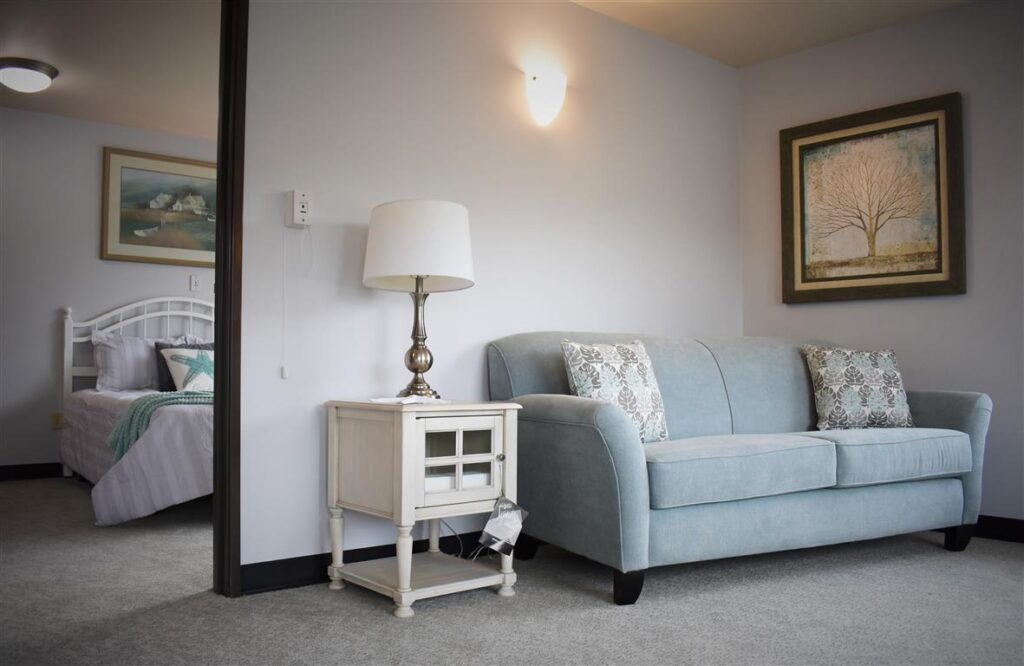
Spruce Point Assisted Living & Memory Care (Florence, OR)
Degree of Need.
Although both assisted living communities and skilled nursing facilities are designed to help people improve their quality of life, one key difference is the level and type of care required by the individual. The level and type of care you or your loved one requires will help determine which type of facility is best for you.
If you require rehabilitative services like occupational, speech, respiratory, or physical therapy, a skilled nursing facility is more equipped to satisfy that need. It is because medical care is offered around the clock, and registered nurses are available 24/7. For an elderly person who requires assistance with daily living, social support, financial management, and mental health, assisted living may be the better solution.
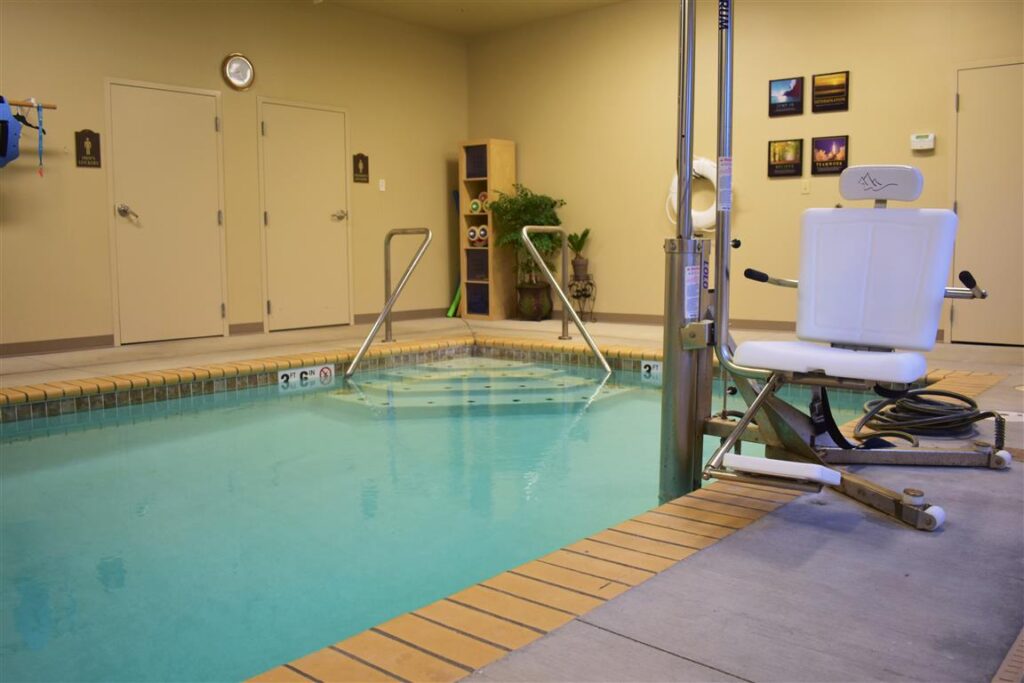
Therapy pool for rehab residents at Puyallup Nursing & Rehabilitation (Puyallup, WA)
Cost Differences.
When you think of the average monthly cost to live in a nursing home, you might very quickly get sticker shock. Generally speaking, a skilled nursing facility will run at least twice the cost as an assisted living community. It’s not uncommon for a monthly skilled nursing bill to approach or surpass the $10,000 mark.
What you have to remember is that, for the most part, costs are all-inclusive of all your nursing and rehabilitative needs with 24/7 nursing oversight and care, three meals a day and snacks in between, daily enrichment activities, all utilities (including satellite TV and internet), transportation to and from doctor’s appointments, and your room accommodations that also come with ancillary services such as housekeeping and laundry.
Of note is that assisted living communities will generally require that individuals self-pay for the first two to three years before other payment options will be allowed. Medicare will cover some assisted living or nursing facility expenses provided you or your elderly loved one needs to recover from an injury, surgery, or health condition.
The easiest way to navigate costs is to have a candid conversation with the facility itself. While certain pricing structures are similar between facilities, each community has their own specific fee structure which is important for you to know up front.
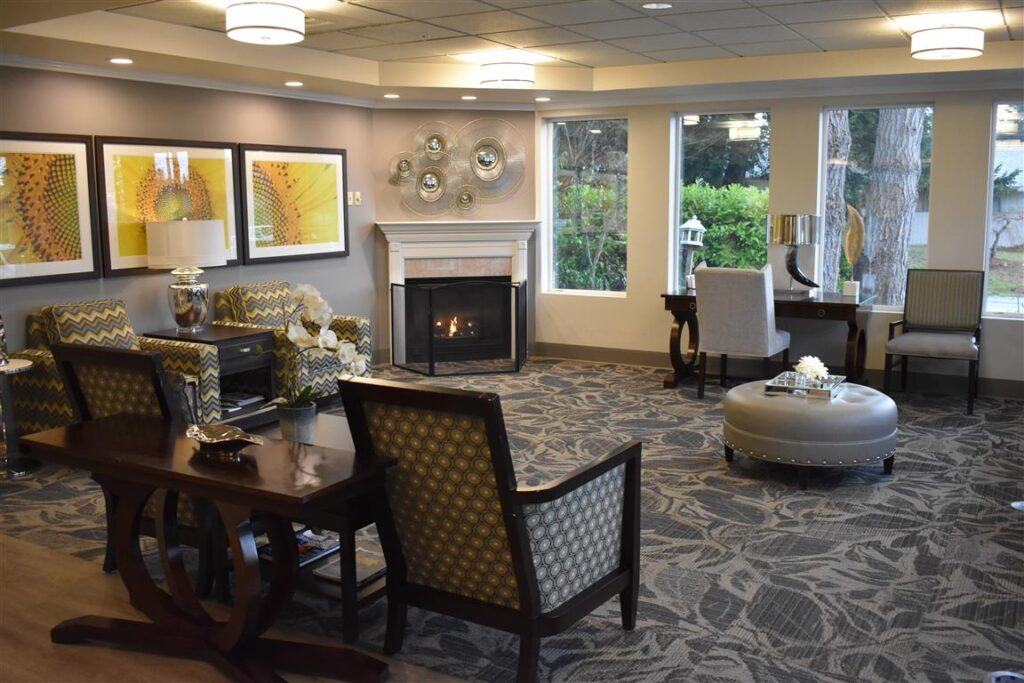
Lobby of View Ridge Care Center, a Nightingale Healthcare skilled nursing facility (Everett, WA)
Duration of the Stay.
Assisted living care is more long-term than skilled nursing care. Generally, nursing is required after a sudden health deterioration or hospitalization. On the other hand, assisted living exists to help you or your elderly loved one enjoy life while receiving help for challenging tasks.
The Goal of the Residency.
The rationale behind skilled nursing care is rehabilitation until the patient can proceed to a lengthy supportive option. On the contrary, the goal of assisted living care is to provide the elderly individual with the independence they want while helping them with daily activities.
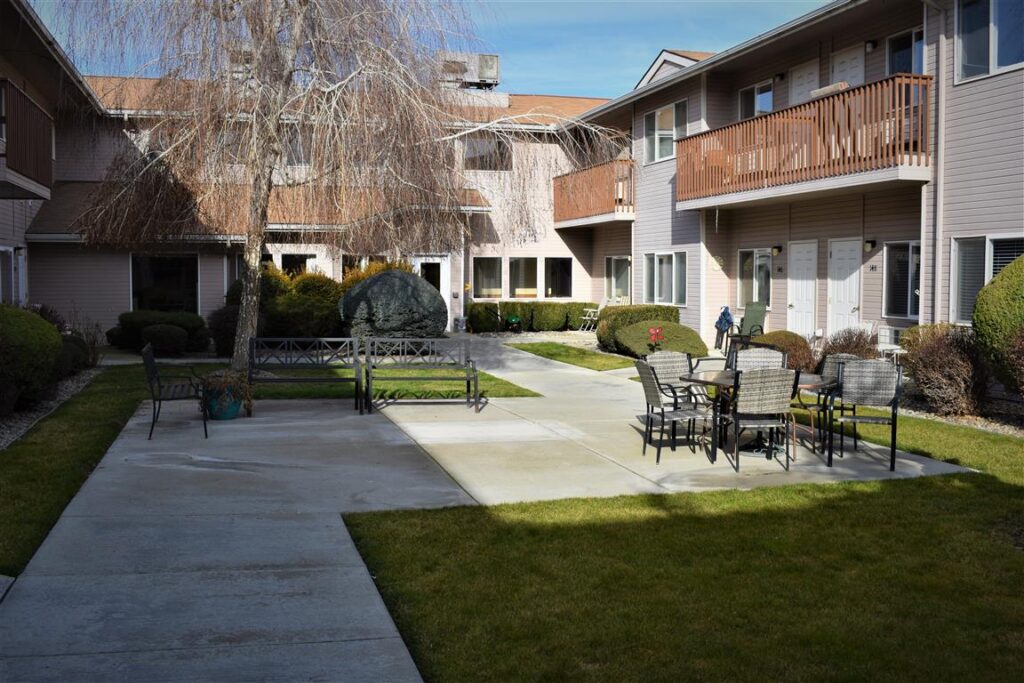
Community courtyard at Sunnyside Assisted Living (Sunnyside, WA)
Degree of Independence.
Since nursing care is tailored to assist patients after a hospitalization, it involves continuous medical care and monitoring. You or your elderly loved one’s schedule can be more restricted depending on the medical service required.
Independence and ability to engage in different activities is a hallmark of assisted living communities. The individual is in control of his/her schedule and can engage in activities such as physical exercise, community outings, social engagements, creative expression, games, arts and crafts, and general socializing.
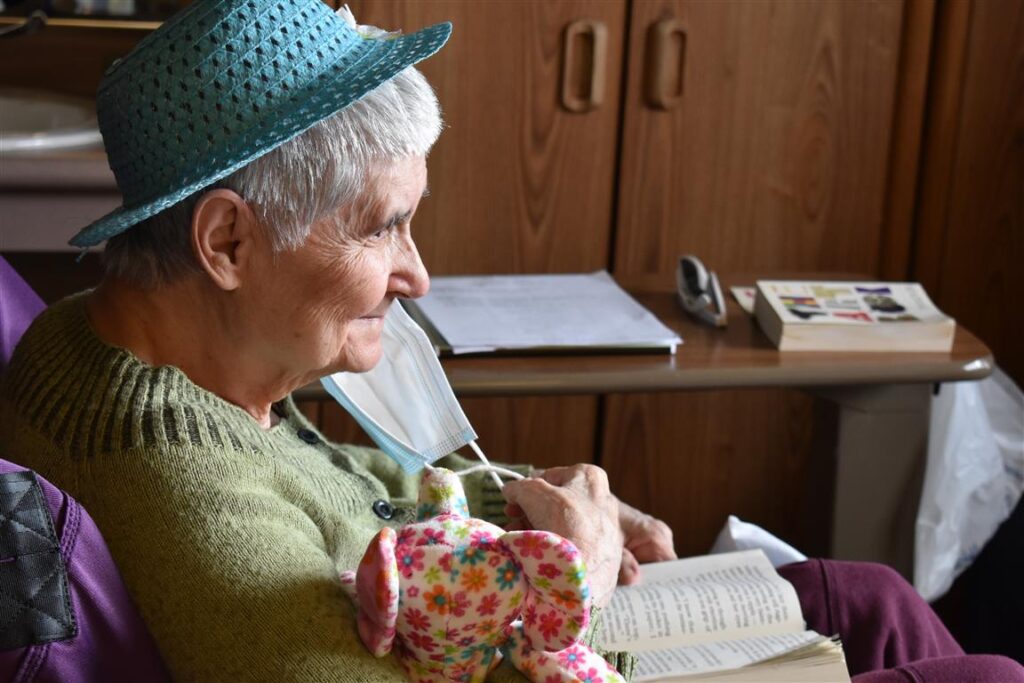
A long-term care resident enjoys a quiet afternoon of reading at Mt. Baker Care Center (Bellingham, WA)
How to Determine Which Facility is Right for You.
No two needs are the same, so the suitability of a facility will be based on a variety of factors ranging from how much support you require every day, your health needs, and your personal preferences for comfort. Choosing the option that best suits your unique needs plays a significant role in keeping you or your loved one active, safe, happy, and healthy.
If you have any preliminary questions about what living or healing at an assisted living or skilled nursing community with a Nightingale Healthcare facility may look like, please reach out to us for a consultation. Our experienced and friendly team of professionals is happy to listen to your needs and help guide your decision-making journey in a manner that will provide you the best results, whether it’s physical healing or a life of independence and fun!
Over the years, Nightingale Healthcare, a family-owned company, has improved the quality of life for hundreds of elderly individuals throughout Washington State and Oregon. Please feel free to visit our website for more information at www.nightingaleliving.com.
